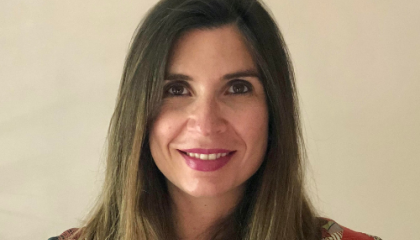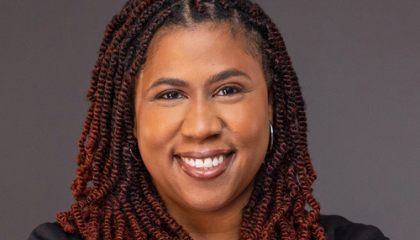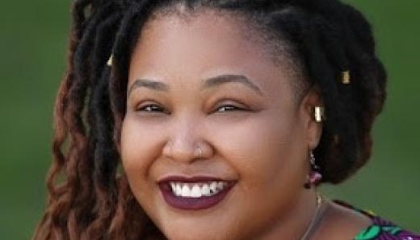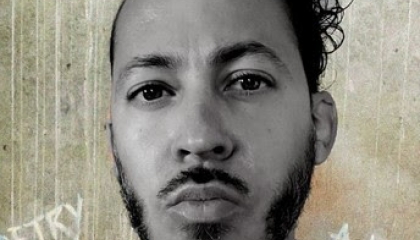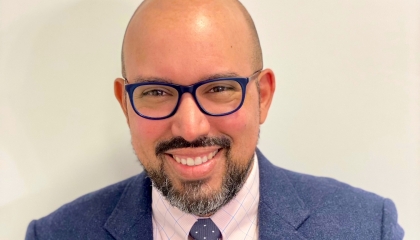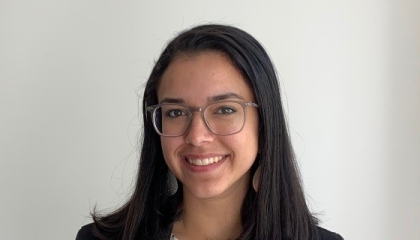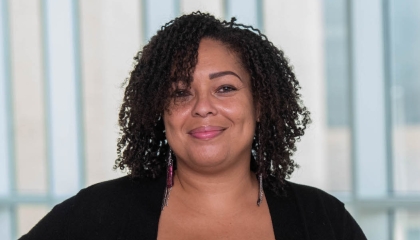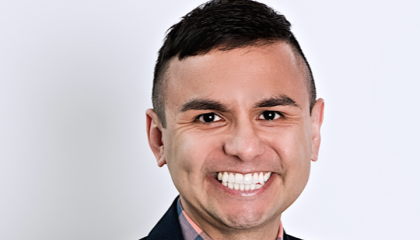The Center for Anti-racism, Social Justice & Public Health hosts a seminar series during the academic year. Public Health Academics are invited from NYU and other institutions to share their research and expertise in their field. This series serves as a catalyst for change, fostering a comprehensive understanding of the intricate relationship between systemic racism and unequal access to healthcare while inspiring tangible steps toward creating a more just and equitable future.
Our Fall 2024 seminar series will focus on the theme "Measuring Structure: Approaches and Data Insights on Structural Discrimination." This three-part seminar series explores innovative approaches to understanding and quantifying structural discrimination in public health and social systems. Featuring leading experts in the field, Dr. Stephanie Cook, Dr. Ester Villalonga Olives, and Dr. Patricia Homan. The series delves into the methodologies, data sources, and analytical frameworks that illuminate how structural inequalities shape health outcomes and perpetuate social disparities. Attendees will gain insights into cutting-edge research and practical applications for advancing equity through data-driven solutions.
Fall 2024: " Measuring Structure: Approaches and Data Insights on Structural Discrimination"
-
"Getting Structural: How Measuring Structural Oppression Can Advance Intersectional Health Equity Research"- December 12, 2024
Dr. Patricia (Trish) Homan is an Associate Professor of Sociology and Director of Research and Strategic Initiative for the Public Health Program at Florida State University. She is a medical sociologist, demographer, and feminist scholar. She is a nationally recognized expert in the structural determinants of population health and is best known for her pioneering work in developing a structural sexism approach to population health. Her body of research focuses on developing conceptual frameworks and empirical measurements for structural sexism, structural racism, and other forms of structural oppression and examining how these forces shape health in the United States. Her work has been published in leading outlets across many fields, including the American Sociological Review, Demography, American Journal of Public Health, The Milbank Quarterly, Health Affairs, Social Forces, Social Science & Medicine, Journal of Health and Social Behavior, and The Gerontologist, among other outlets. Her research has won multiple national awards, including the 2024 Milbank Quarterly Early Career Award in Population Health, the 2022 NIH Matilda White Riley Early-Stage Investigator Award, the 2022 Early Career Gender Scholar Award from SWS South, the 2021 ASA Sex & Gender Section Distinguished Article Award, and the 2019 Roberta G. Simmons Outstanding Dissertation Award from the ASA Medical Sociology Section.
Before joining the FSU faculty in 2018, Dr. Homan received an undergraduate degree in Sociology from Princeton University, a PhD in Sociology from Princeton University, and a PhD in Sociology from Duke University, where she also completed a T-32 pre-d0ctoral fellowship in the Demography of Aging. She is currently on sabbatical and is a visiting scholar at Harvard University's GenderSci Lab at Brown University's Population Studies and Training Center for the 2024-25 academic year.
Fall 2023 Seminars
-
Rediet Abebe, PhD: October 18, 2023| 11:30 PM- 12:30 PM| NYU GPH (Hybrid)
Rediet Abebe, PhD is a Junior Fellow at the Harvard Society of Fellows and a 2022 Andrew Carnegie Fellow.
Dr. Abebe’s research examines the interaction of algorithms and inequality, with a focus on contributing to the scientific foundations of this emerging research area. Abebe co-launched the ACM Conference on Equity and Access in Algorithms, Mechanisms, and Optimization (EAAMO), for which Abebe serves on the executive committee and was a program co-chair for the inaugural conference. Abebe holds a Ph.D. in Computer Science from Cornell University and Master’s degrees in mathematics from both the University of Cambridge and Harvard University.
-
Anna-Michelle McSorley, PhD: October 31, 2023| 1:30 PM- 2:30 PM| NYU GPH (Hybrid)
Doctora Anna-Michelle McSorley is a Postdoctoral Associate at the Center for Anti-racism, Social Justice, and Public Health at the New York University (NYU) School of Global Public Health. She is also a Faculty Affiliate of the Center for the Study of Racism, Social Justice and Health at the University of California, Los Angeles (UCLA) Fielding School of Public Health.
She received her PhD (2022) and MPH (2018) in Community Health Sciences from UCLA. As part of her graduate training, she also completed a minor in Race, Ethnicity and Politics within the Department of Political Science at UCLA and was a funded Policy Fellow in the Public Health Training Program on Population Health Advocacy.
Dra. McSorley is a public health scholar who combines her training in community health, political science, and public health advocacy to study how political systems work for or against the health and well-being of racial and ethnic minority communities, with a particular focus on Latinx communities. Using mixed-method approaches, she works to identify the pathways that connect political decisions, processes, and representation to the health inequities that emerge within Latinx populations in the United States.
-
Saba Rouhani, PhD: November 29, 2023| 1:00 PM- 2:00 PM| NYU GPH (Hybrid)
Dr. Saba Rouhani is an Assistant Professor in the Department of Epidemiology at GPH, and joins the school as inaugural faculty at its Center for Anti-racism, Social Justice and Public Health.
Her research is focused on characterizing the structural environment that influences the risk of overdose and other drug-related harms; she investigates the impact of harm reduction and overdose prevention initiatives, using results to identify gaps in implementation and to inform policy. Dr. Rouhani is especially interested in how drug policy has fueled mass incarceration and impacted racial and ethnic minorities in the United States, and she studies how changes to the policy and policing landscape may promote or hinder equity in health and social outcomes. Her current research is focused on characterizing emerging drug decriminalization policies and modeling their impacts on equity in criminal legal involvement and health outcomes.
Prior to joining NYU Dr. Rouhani worked as research faculty in the Department of Health, Behavior and Society at the Johns Hopkins Bloomberg School of Public Health. She also completed a fellowship funded by the National Institutes of Health/National Institute on Drug Abuse. Her research has been published in the International Journal of Drug Policy, Drug and Alcohol Dependence, the Journal of Urban Health, and the American Journal of Public Health and Preventive Medicine.
-
Adolfo Cuevas, PhD: December 7, 2023| 2:00 PM- 3:00 PM| NYU GPH (Hybrid)
Adolfo G. Cuevas, PhD is an Assistant Professor in GPH’s Department of Social and Behavioral Sciences, as well as a scholar in its Center for Anti-Racism, Social Justice and Public Health. He employs epidemiological, psychological and biological approaches to investigate the effects of discrimination and other psychosocial determinants of health and health inequities.
As a community psychologist, he uses population-level datasets and advanced statistical methods to understand how psychosocial determinants “get under the skin” and increase the risk of aging-related diseases. For his research work on race, racism and health, Dr. Cuevas was selected one of the National Minority Quality Forum's 40 Under 40 Leaders in Minority Health in 2018. He is also a recipient of the Diversity Scholar Award by the Nutrition Obesity Research Center at Harvard University.
Prior to joining NYU, he was the Gerald R. Gill Assistant Professor of Race, Culture and Society at Tufts University. Dr. Cuevas’ work has been published in scientific journals such as the Proceedings of the National Academy of Sciences and the American Journal of Public Health, and he has been featured in HuffPost and NPR's Code Switch. While at Tufts he directed a multidisciplinary team of researchers investigating the obesogenic effects of discrimination across the life course.
Spring 2023 Seminar
Upcoming Seminars
-
Rachel Hardeman, PhD, MPH: "We Have Run Out of Time": Antiracist Approaches to Data & Measurement for Health Equity"
In order to identify, understand, and dismantle the impacts of racism on health, we urgently need sound measures of structural racism. "We have run out of time" to address racism. It is critical that health professionals, researchers, and data scientists apply antiracism and multidimensional understanding to measurement. Join Rachel Hardeman, PhD, MPH, Associate Professor and Blue Cross Endowed Professor of Health and Racial Equity, Division of Health Policy & Management at the University of Minnesota, for a discussion that outlines the following learning goals: (1) Identify and describe how structural racism affects the health of birthing people and their babies. (2) Apply an antiracism framework to data & measurement practices. (3) Interpret multidimensional frameworks of measuring structural racism.
Who is Dr. Rachel Hardeman?
Dr. Rachel R. Hardeman is a reproductive health equity researcher whose program of research applies the tools of population health science and health services research to elucidate a critical and complex determinant of health inequity—racism. Dr. Hardeman leverages the frameworks of critical race theory and reproductive justice to inform her equity-centered work which aims to build the empirical evidence of racism’s impact on health particularly for Black birthing people and their babies. In 2020, she was named the first Blue Cross Endowed Professor of Health and Racial Equity.
Dr. Hardeman’s research includes a partnership with Roots Community Birth Center, in North Minneapolis, one of five Black-owned freestanding birth centers in the United States. Her work also examines the potential mental health impacts for Black birthing people when living in a community that has experienced the killing of an unarmed Black person by police. Dr. Hardeman is the principal investigator of MORhELab, which explores and defines ways to measure structural racism for the purposes of empirical, quantitative investigation.
